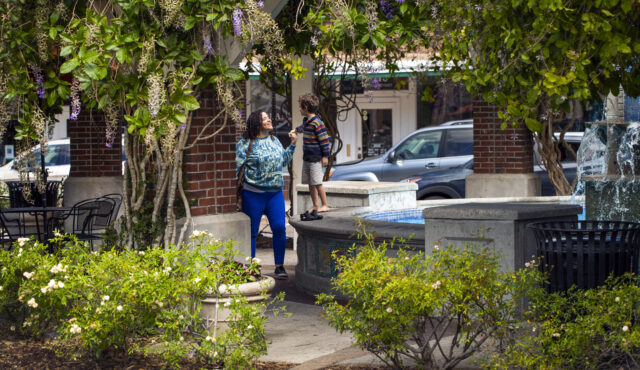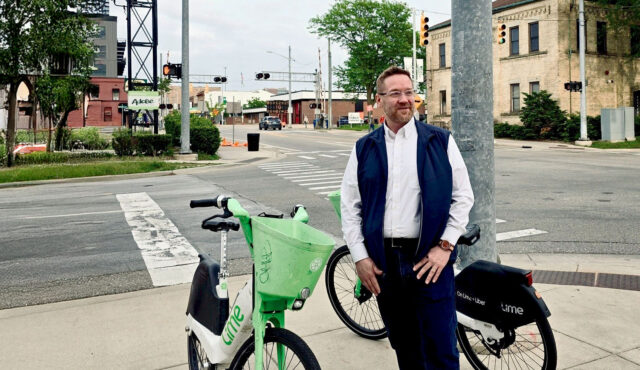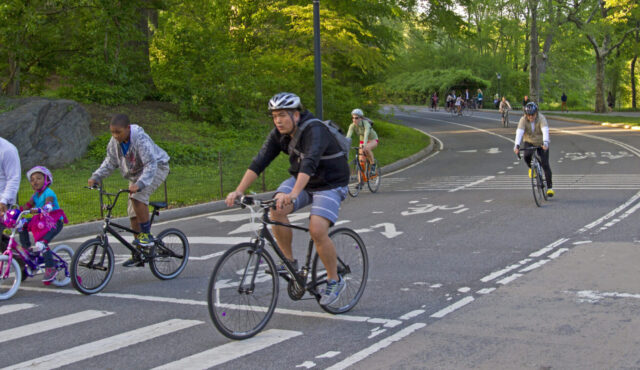 Today, we released a new Resource Guide on Ensuring an Equitable Approach to Rebalancing Streets. The Guide has been a while in the making; there are a lot of people to thank for helping get it published today; and we recognize this isn’t the end point for the document.
Today, we released a new Resource Guide on Ensuring an Equitable Approach to Rebalancing Streets. The Guide has been a while in the making; there are a lot of people to thank for helping get it published today; and we recognize this isn’t the end point for the document.
In the Spring of 2020, as the COVID-19 pandemic was sweeping across North America, we watched with interest as communities launched a variety of initiatives to create more space for people to use active transportation; we even participated in many of the projects. We hosted a very popular webinar on Rebalancing Streets in early April. On the face of it, initiatives like Slow Streets or Shared Streets that are referenced in the Resource Guide, aligned well with our mission of making streets safer, more accessible, and less auto-dependent.
At the same time, staff initiated an internal discussion around the equity implications of these projects. We were challenged to question the process by which Slow Streets and similar projects were selected and implemented; to understand that streets are not “open” or “shared” equitably if you are BIPOC; to acknowledge the deep and historic inequities of the transportation system, created and sustained by racist polices; and to think beyond the latest planning buzzwords and COVID-opportunism.
Then George Floyd was murdered on a Minneapolis street.
We decided to draft an internal document that would help our staff understand the complex and difficult issues at play around Slow Streets. We wanted to broaden our own appreciation of the equity implications of our work, and empower our staff to help clients and colleagues reach a similar level of understanding – at the very least so we might all be aware of the reasons for potential pushback and opposition, especially from BIPOC communities.
We circulated “An Equitable Approach to Slow Streets” as an internal company resource in early June. Author credits went to Trung Vo, Jonathan Neely, Tamika Butler, Bill Schultheiss, Alia Anderson, Andy Clarke, and Catherine Girves.
Earlier this year, we decided it was time to revisit the document, broaden the scope to cover all kinds of street rebalancing initiatives, and make it public. Andy Clarke, Jonathan Neely, Trung Vo and Alia Anderson reprised their roles; Dan Reed and Sagar Onta added their voices to the mix, and the plain word document was turned into a beautifully laid-out Resource Guide by Shailah Handy (alt text by Megan Seib).
The story does not stop here. We don’t imagine that we’ve got all or even most of the answers to this issue all nicely wrapped up in one report. We are keen to learn how we can do more, understand better, and help move our colleagues in the transportation world to create a more just society. Our work does make a difference in the lives of people, which means we have an ethical responsibility to create a more equitable and just world through our actions. Please, tell us what we missed, misunderstood, or what we can do better in the future.


